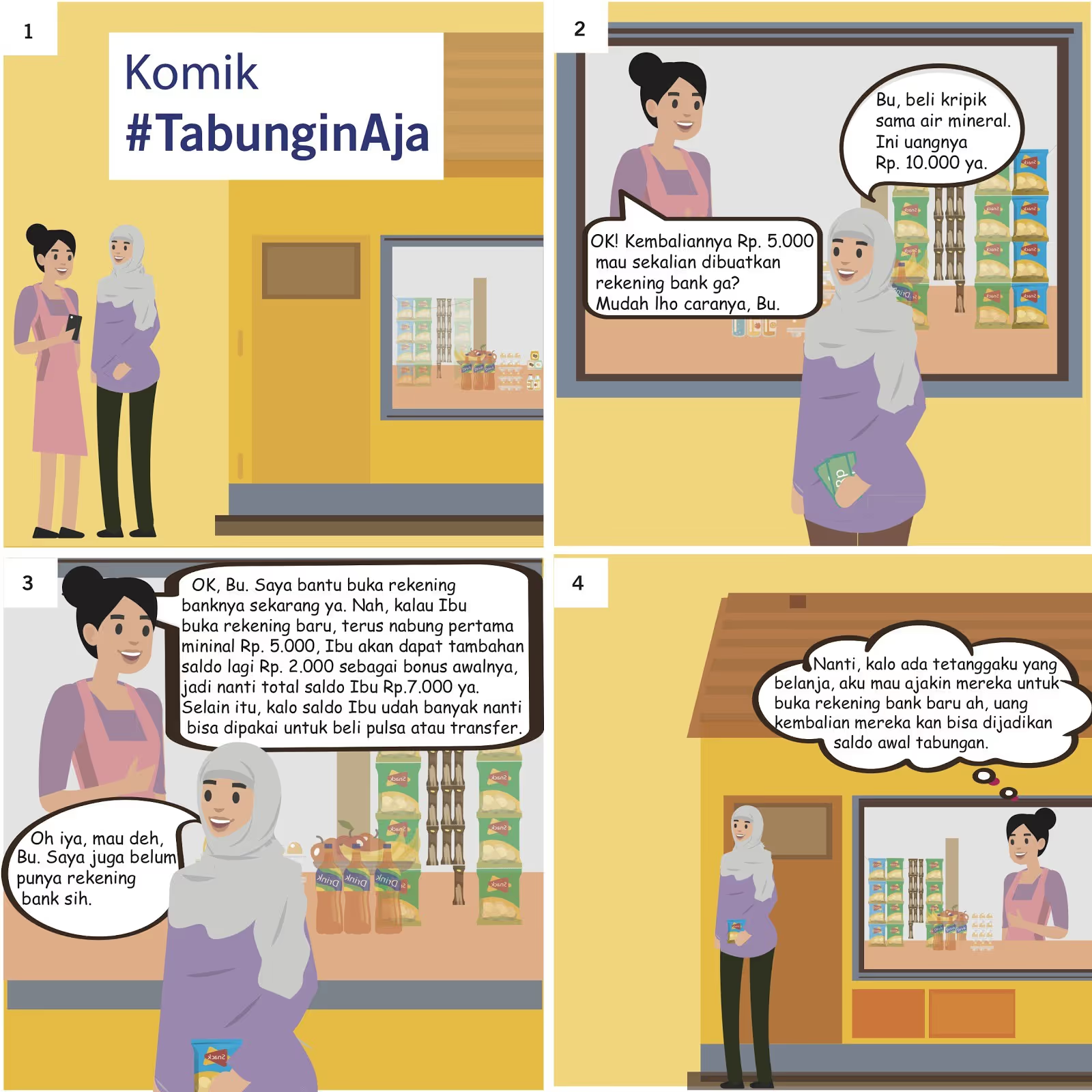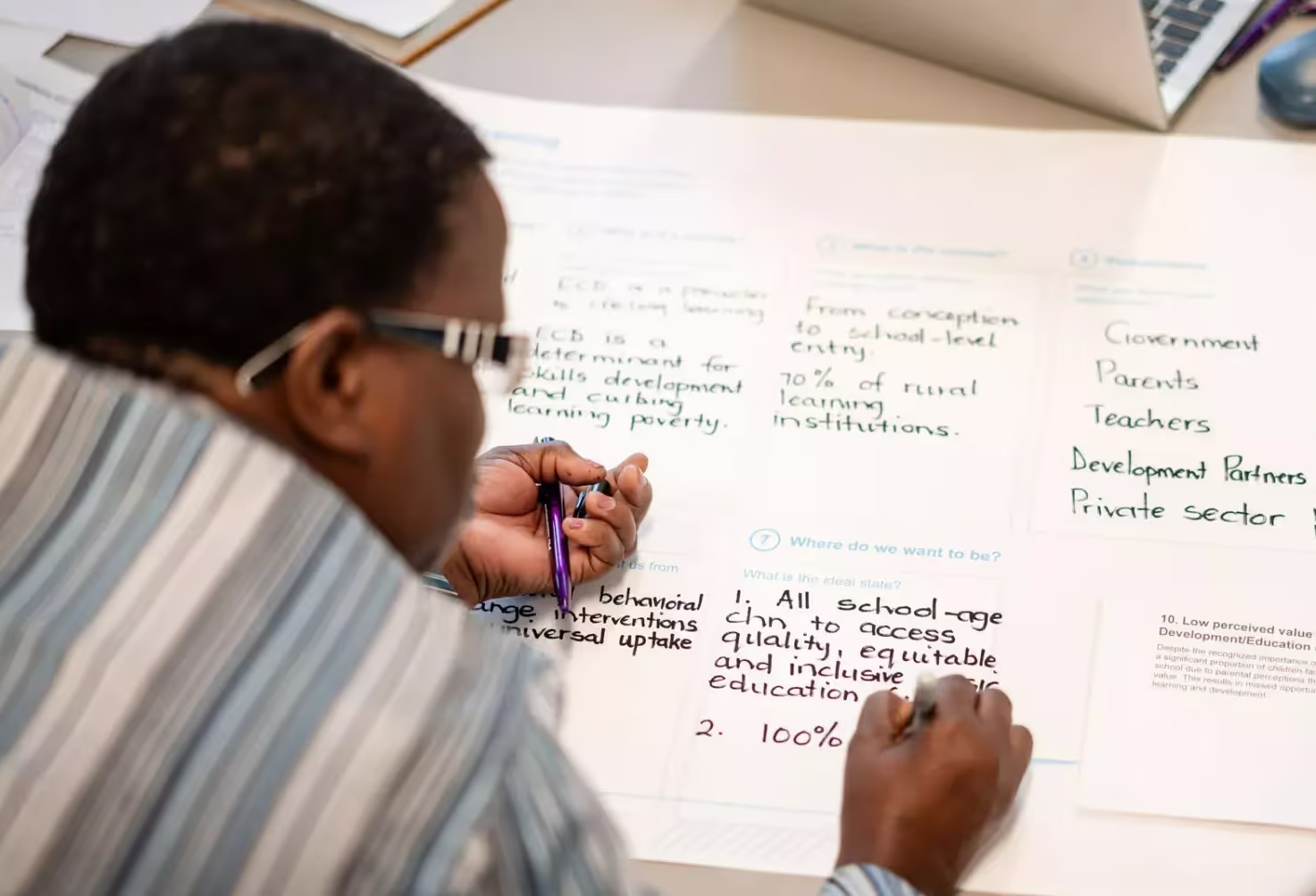Using BeSci to increase the use of bank accounts in Indonesia

Pulse Lab Jakarta ran a behavioural experiment in the form of an 8-week WhatsApp campaign aimed at disseminating a set of key messages to bank agents. The messages (i.e. graphics, comics, written text) were sent to shop owners (who were also bank agents), urging them to encourage their customers to save the change from purchases made at their shops in their bank accounts. The messages shared as part of the #TabunginAja (“#JustSaveIt”) campaign, were informed by BeSci and included setting specific goals and applying rules of thumb to prompt the target behaviour (e.g. to encourage agents to ask their customers to save their shopping change if the amount is less than USD0.35).


.avif)

